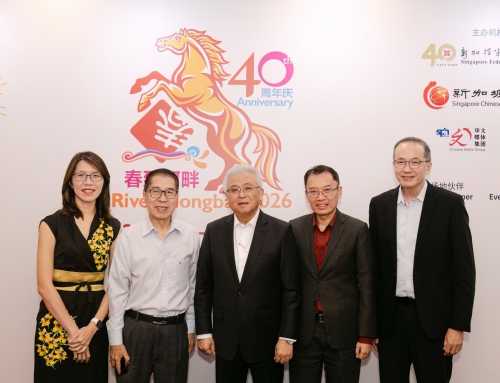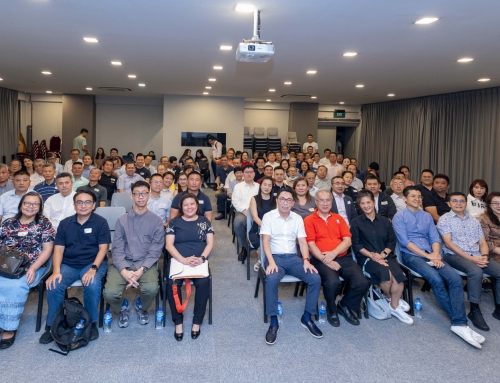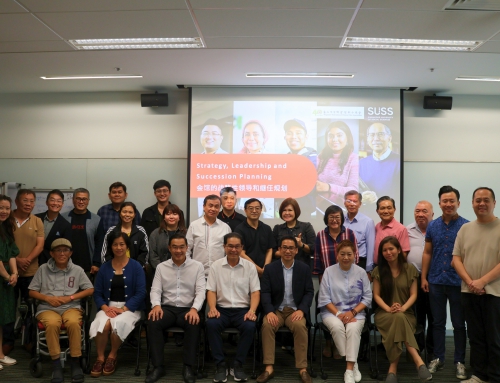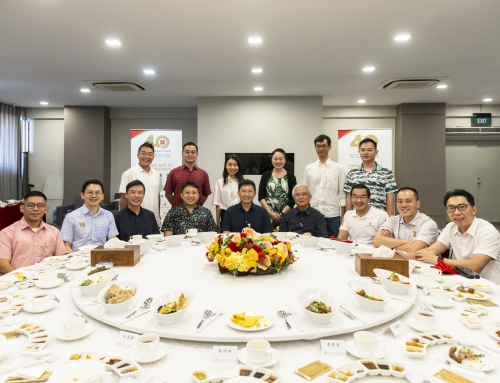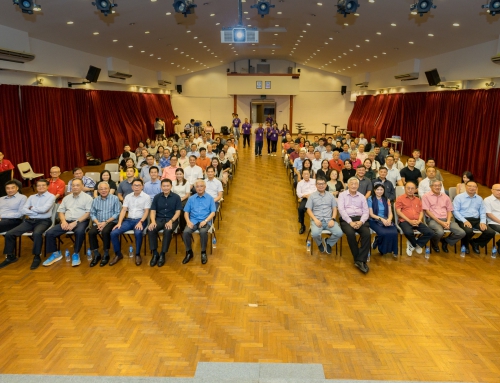On June 13th, as part of the “Picturesque Duan Wu”, a “An Online Virtual Tour of Qu Yuan’s Hometown” was held on the online platform Zoom. The event attracted 108 participants and was also live-streamed on SFCCA’s Facebook page.
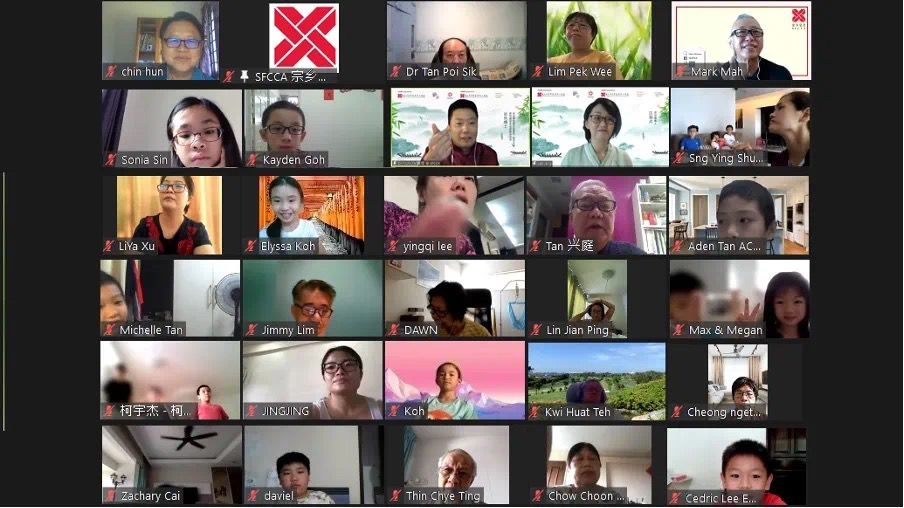
A screenshot of the participants before the event
Wang Li Zhen, a veteran in the media industry and Dr Yun Jia, SFCCA’s Social Affairs Committee and Integration advocate were invited to host the event. The online participants were treated to a visual feast of the scenic area of Qu Yuan’s hometown through a pre-recorded video, with commentary by the hosts in both Mandarin and English.
Qu Yuan, a famous Chinese poet and politician in the State of Chu during the Warring States period, is best known for his connection to the Dragon Boat Festival. Many scholars consider the area of “Chu”, which was the old name for the place now known as Zigui, Hubei, to be the hometown of Qu Yuan. The Qu Yuan’s Hometown Cultural Tourism Zone is well-known for the Qu Yuan Ancestral Hall, also known as Qingliegong Memorial Hall. The memorial hall was built in the 15th year of Yuanhe (820 A.D.) during Tang Dynasty. In addition to a bronze statue of Qu Yuan, the hall also houses a cenotaph and an exhibition hall dedicated to him. In the hometown of Qu Yuan, there are several traditional practices during the Dragon Boat Festival, such as wrapping rice dumplings, hanging plants such as the sweet flag and mugwort, drinking xionghuang wine and dragon boating. These have all been inscribed on the list of UNESCO Intangible Cultural Heritage.
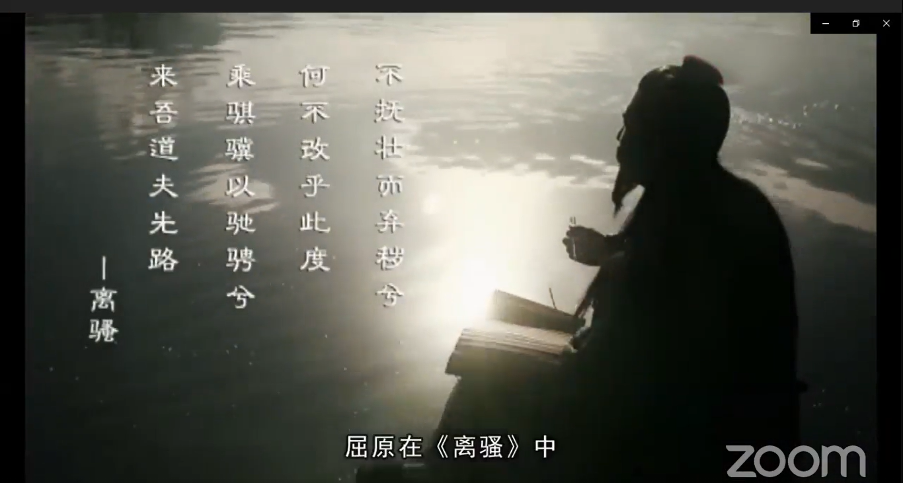
A short video introducing the background of Qu Yuan was played on the virtual tour held on Zoom
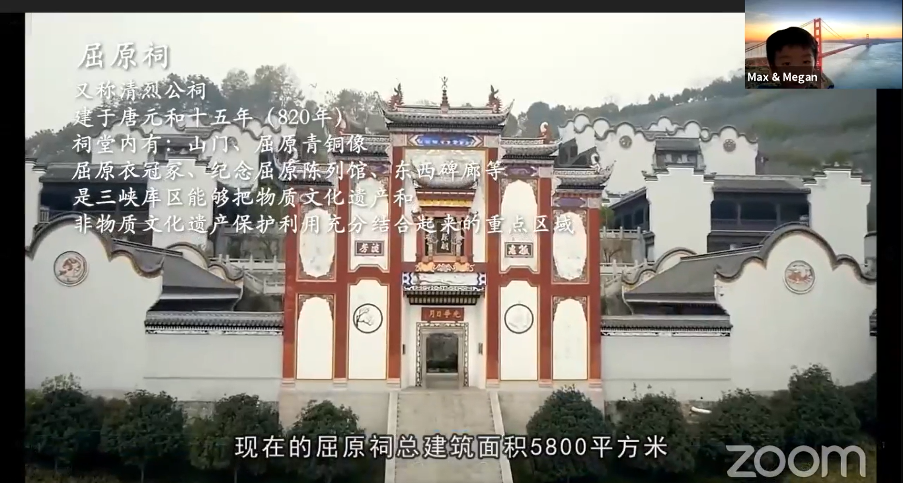
Video introduction of Qu Yuan’s hometown’s cultural sightseeing locations
At the event, the participants were introduced to the historical and cultural elements of the Dragon Boat Festival. When one talks about the origins of this festival, there are three widely known variations. Firstly, the tradition of bathing with herbs to detoxicate. It was said that in ancient times, many people would pluck the cymbidium, commonly known as boat orchids, in the lunar month of May and would add it to their baths for detoxification purposes. Secondly, the Festival could have originated from practices that “ward off evil to avoid diseases”. On the fifth day of the lunar month of May, people would hang up sweet flag plants and mugwort to ward off evil, in addition to burning cangzhu (known as Atractylodes lancea), baizhi (commonly known as Dahurian angelica) and drinking xionghuangwine to avoid contracting diseases. Lastly, the Dragon Boat Festival originated as a festival to commemorate historical figures, Qu Yuan and Wu Zixu. The last origin is the most commonly known.
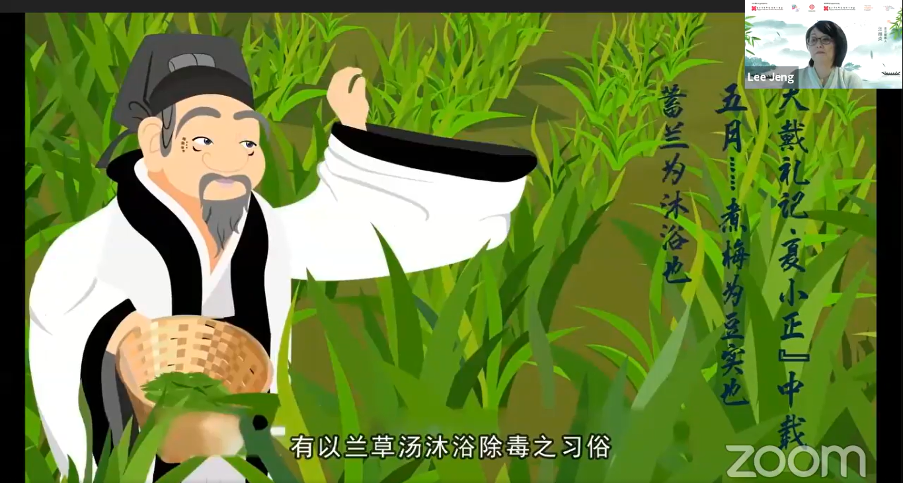 The festival could have originated from practices that “ward off evil to avoid diseases”
The festival could have originated from practices that “ward off evil to avoid diseases”
This virtual cultural tour also provided participants with insights into the differences in the customs between northern and southern China, as well as how the festival is celebrated in other parts of the world. In southern China, people generally eat savoury rice dumplings, hang up mugwort plants, as well as wear scented sachets and participate in dragon boat racing. On the other hand, people in northern China would eat sweet rice dumplings, wear five-colour silk bands on their wrists and ankles to ward off evil, and commemorate Qu Yuan by stepping on willows and composing poems.
In Japan, the Dragon Boat Festival is also their Children’s Day, where hanging “carp flags” and eating Kashiwa mochiare traditions associated with the festival. On the other hand, the Korean Dragon Boat Festival is a day to pray to deities, and the Gangneung Danoje Festival is the most symbolic celebration of the season. The practices in Malaysia are similar to Singapore, where the people race in dragon boats and compete in wrapping rice dumplings, while in Vietnam, the traditions of applying xionghuang wine to parts of the face and wearing five-colour silk bands are more prevalent.
In Singapore, the Dragon Boat Festival is also an important part of the cultural heritage. Apart from organising international dragon boat races, rice dumplings of varying shapes and flavours will be available each year. The Peranakan, Hokkien and Cantonese dumplings are still the most common ones in Singapore.
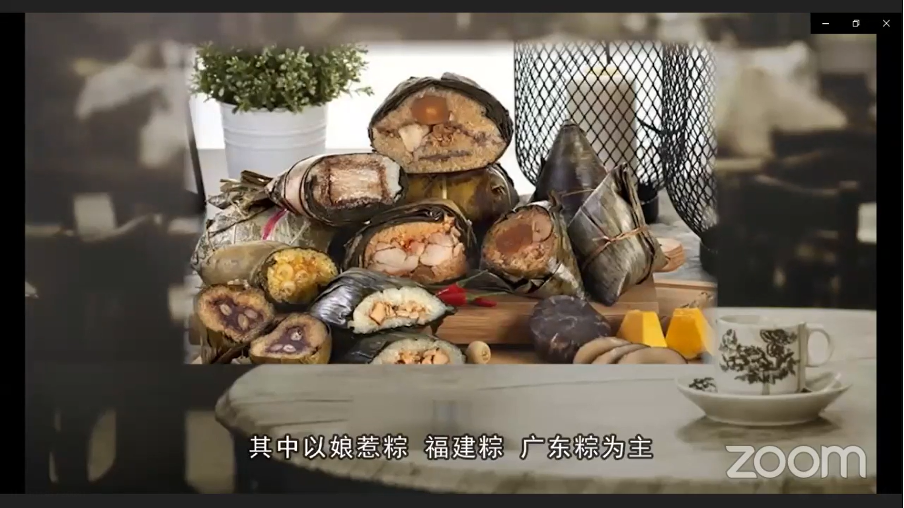
Wide variety of rice dumplings in Singapore
The Dragon Boat Festival Carnival is jointly organised by the Singapore Federation of Chinese Clan Association (SFCCA), Singapore Chinese Cultural Centre (SCCC) and Toa Payoh Community Club. Each year, a series of programmes will be in store for participants to enjoy the festivities. These include the classic dry dragon boat racing competition, food stalls, cultural performances, cultural exhibitions, National Primary and Secondary Schools Art Competition and online games.
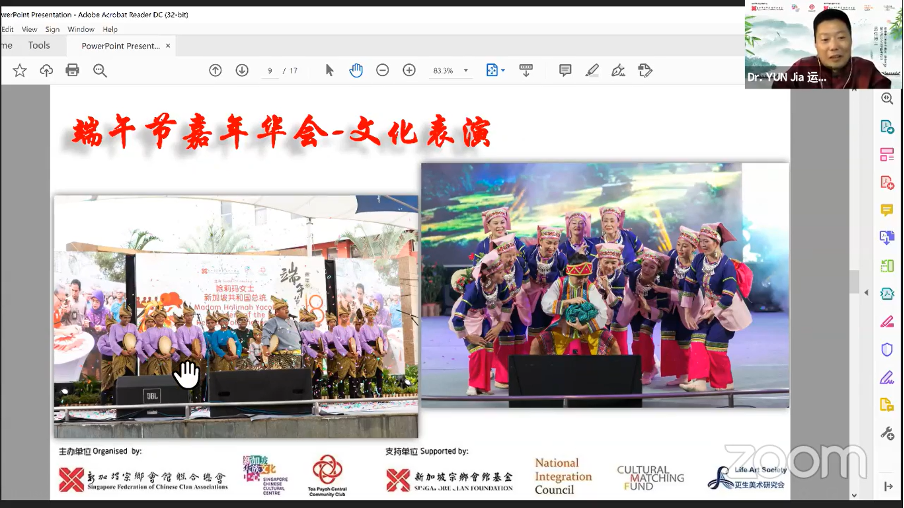
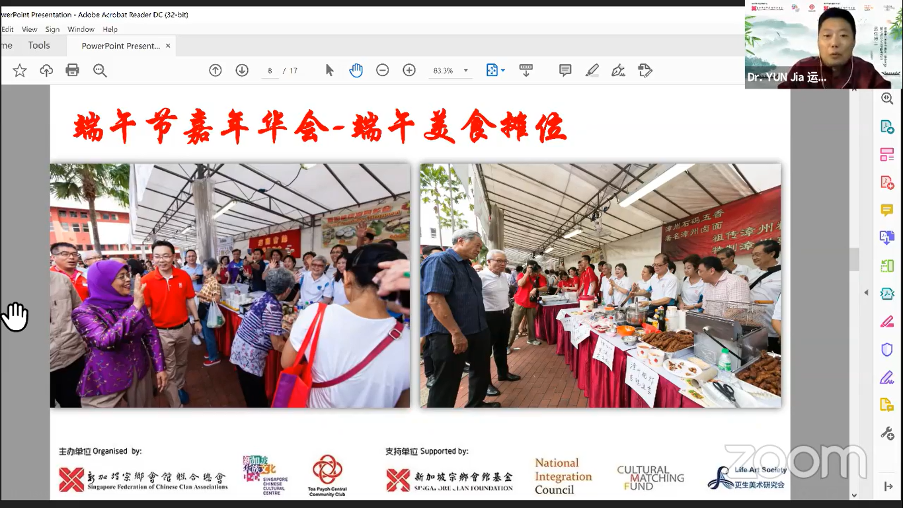
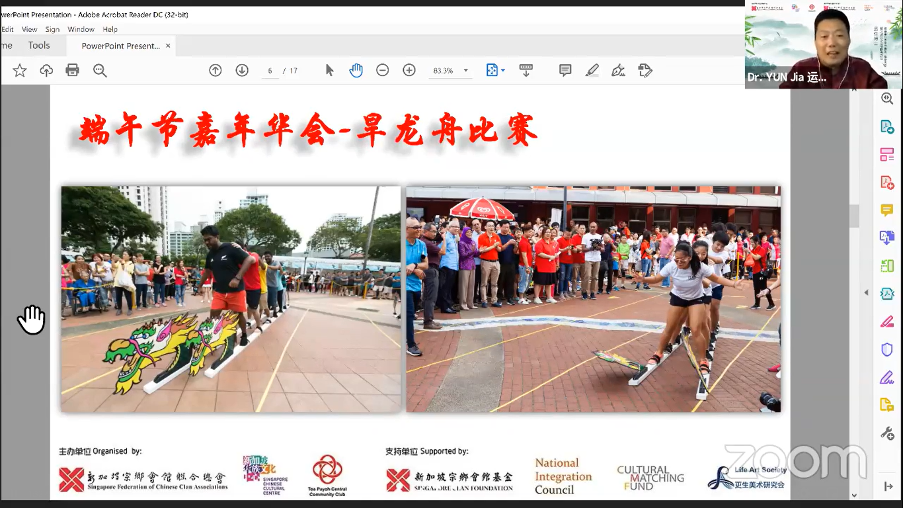
Past exciting activities of The Dragon Boat Festival Carnival
After the first Online Dragon Boat Festival Carnival held last year, the organisers used the same approach to celebrate Dragon Boat Festival virtually with everyone. Picturesque Duan Wu – An Online Virtual Tour Of Qu Yuan’s Hometownwas the finale of this event.
Before the end of the event, Dr Zhou Zhaocheng, Chairman of SFCCA Social Affairs Committee, announced the winners of the “A Joyous Duan Wu Festival Celebration” Art Contest, as well as the finalists of the online game “Dragon Boat Hurrah!”. Both competitions were held during the Online Duan Wu Carnival 2021. For those who are interested in viewing the award-winning art works of the competition, please visit www.sfcca.sg/2021/06/15/喜洋洋庆端午绘画比赛得奖名单

